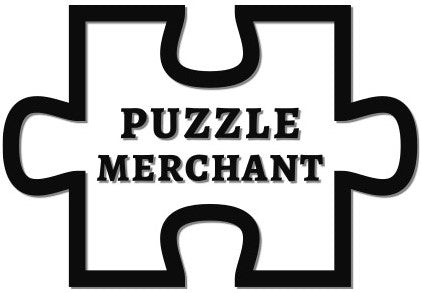Introduction:
In a world where cognitive decline is a growing concern, maintaining brain health has never been more important. Fortunately, engaging in mentally stimulating activities like puzzles offers a fun and effective way to keep your mind sharp and agile. In this article, we'll explore the relationship between puzzles and brain health, examining the cognitive benefits they provide and offering insights into how you can incorporate puzzles into your daily routine to promote cognitive longevity.
Understanding Brain Health:
Before delving into the benefits of puzzles, it's essential to understand what constitutes brain health. Brain health encompasses various cognitive functions, including memory, attention, problem-solving, and reasoning skills. A healthy brain is characterized by the ability to learn, adapt, and retain information effectively, allowing individuals to navigate daily tasks and challenges with ease.
The Cognitive Benefits of Puzzles:
Puzzles offer a unique blend of mental stimulation and entertainment, making them an ideal tool for maintaining and enhancing brain health. Research has shown that engaging in puzzle activities can have several cognitive benefits, including:
- Improved Memory: Completing puzzles requires the recollection of visual patterns, shapes, and spatial relationships, which can enhance both short-term and long-term memory.
- Enhanced Problem-Solving Skills: Puzzles present individuals with challenges that require logical reasoning, critical thinking, and creative problem-solving strategies to overcome.
- Increased Attention Span: Focusing on the intricate details of a puzzle for an extended period can help improve attention span and concentration abilities.
- Sharpened Spatial Awareness: Manipulating puzzle pieces and fitting them together promotes spatial awareness and visual-spatial reasoning skills.
- Boosted Mood and Stress Reduction: Engaging in puzzle activities has been shown to promote relaxation, reduce stress levels, and enhance overall mood, which can have positive effects on cognitive function.
Types of Puzzles for Brain Health:
There are countless types of puzzles available, each offering its own set of cognitive challenges and benefits. Some popular types of puzzles that are particularly beneficial for brain health include:
- Jigsaw Puzzles: These classic puzzles require individuals to assemble interlocking pieces to form a complete picture, promoting visual-spatial skills and problem-solving abilities.
- Crossword Puzzles: Crossword puzzles challenge individuals to use their vocabulary, memory, and reasoning skills to fill in the blanks and solve clues.
- Sudoku: Sudoku puzzles involve arranging numbers in a grid according to specific rules, requiring logical deduction and critical thinking skills.
- Logic Puzzles: Logic puzzles, such as logic grids and riddles, challenge individuals to use deductive reasoning and inference to solve complex problems.
Incorporating Puzzles into Your Routine:
To reap the cognitive benefits of puzzles, it's important to incorporate them into your daily routine in a way that fits your lifestyle and preferences. Here are some tips for integrating puzzles into your routine:
- Set aside dedicated puzzle time: Schedule regular periods throughout the week to work on puzzles, whether it's during your morning coffee break or in the evening before bed.
- Mix it up: Experiment with different types of puzzles to keep your brain engaged and challenged. Rotate between jigsaw puzzles, crossword puzzles, sudoku, and other varieties to target different cognitive skills.
- Make it social: Invite friends or family members to join you for puzzle-solving sessions. Working on puzzles together not only adds a social element but also fosters teamwork and collaboration.
- Challenge yourself: Gradually increase the difficulty level of the puzzles you tackle to keep your brain stimulated and prevent boredom. Choose puzzles that push your cognitive limits and encourage growth.
Other Strategies for Brain Health:
While puzzles are an effective way to maintain brain health, they are just one piece of the puzzle when it comes to cognitive longevity. Incorporating other brain-boosting activities and lifestyle habits can further support brain health and overall well-being. Consider the following strategies:
- Stay physically active: Regular exercise has been shown to promote brain health by increasing blood flow to the brain, reducing inflammation, and promoting the growth of new brain cells.
- Eat a brain-healthy diet: Consuming a balanced diet rich in fruits, vegetables, whole grains, and omega-3 fatty acids can support brain health and cognitive function.
- Get enough sleep: Prioritize restful sleep to allow your brain to recharge and consolidate memories. Aim for 7-9 hours of quality sleep per night.
- Stay socially engaged: Maintain social connections with friends, family, and community members to stimulate cognitive function and ward off feelings of isolation and loneliness.
Conclusion:
In conclusion, puzzles offer a fun and effective way to keep your mind sharp and promote brain health throughout life. By engaging in mentally stimulating activities like puzzles, you can improve memory, enhance problem-solving skills, and boost overall cognitive function. Whether you prefer jigsaw puzzles, crosswords, sudoku, or logic puzzles, there are endless opportunities to challenge your brain and reap the cognitive benefits. So, the next time you're looking for a brain-boosting activity, reach for a puzzle and give your mind the workout it deserves.
About the writer: Will Roya is a lifelong gaming and puzzle enthusiast. He is the founder of Puzzle Merchant and author of the book Card Night.

Last update date: 4/9/24

